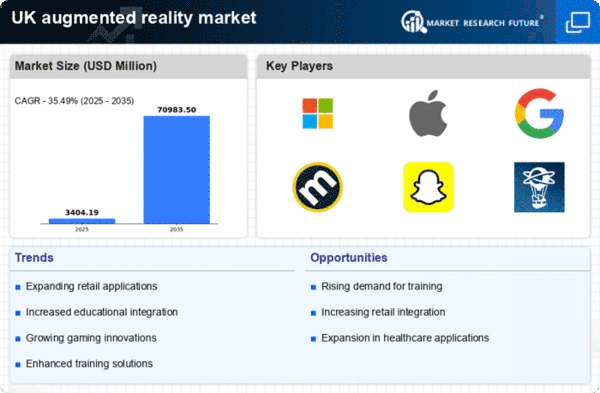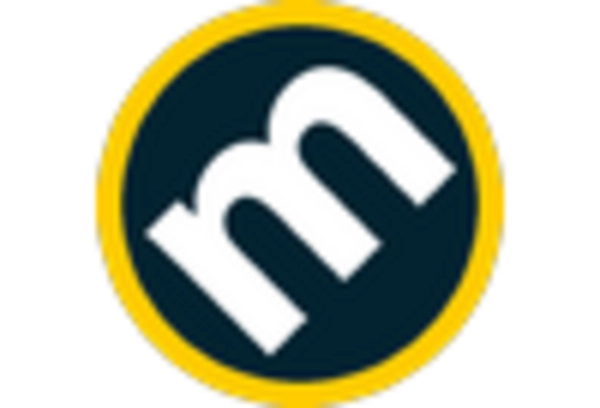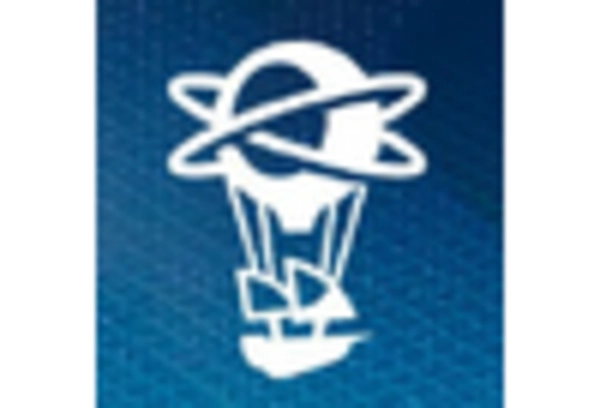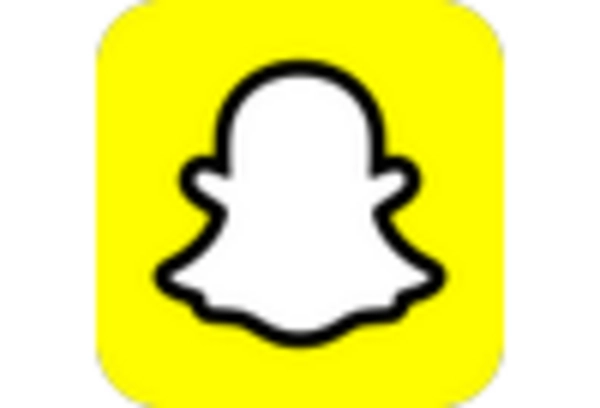Government Initiatives and Support
Government initiatives aimed at promoting technological innovation are playing a pivotal role in the growth of the augmented reality market. Various UK government programs are designed to support research and development in AR technologies, providing funding and resources to startups and established companies alike. These initiatives are likely to foster collaboration between academia and industry, leading to the development of cutting-edge AR applications. As the government continues to prioritize digital transformation, the augmented reality market stands to benefit from increased funding and support, potentially accelerating its growth trajectory in the coming years.
Technological Advancements in Hardware
The augmented reality market is experiencing a surge in technological advancements, particularly in hardware capabilities. Innovations in mobile devices, such as smartphones and tablets, are enhancing the user experience by providing more powerful processors and improved graphics. For instance, the introduction of AR-capable devices has led to a projected growth rate of 30% in the market by 2026. Furthermore, the development of lightweight AR glasses is likely to expand the market's reach, making it more accessible to consumers and businesses alike. This evolution in hardware is crucial for the augmented reality market, as it enables more immersive and interactive applications across various sectors, including gaming, retail, and healthcare.
Investment in AR Startups and Innovations
The augmented reality market is witnessing a notable increase in investment, particularly in startups focused on AR innovations. Venture capital funding for AR companies has surged, with investments reaching approximately £1 billion in the past year alone. This influx of capital is fostering the development of new applications and technologies, which could potentially reshape the market landscape. As more investors recognize the potential of AR to transform industries such as healthcare, education, and entertainment, the augmented reality market is likely to benefit from a wave of innovative solutions that cater to diverse consumer needs.
Integration of AR in Education and Training
The integration of augmented reality in education and training is becoming increasingly prevalent, significantly impacting the augmented reality market. Educational institutions are adopting AR tools to create immersive learning experiences, which can enhance student engagement and retention. For example, AR applications in medical training allow students to visualize complex anatomical structures in 3D, improving their understanding of the subject matter. This trend is expected to contribute to a growth rate of 25% in the education sector's use of AR technologies by 2025. As educational institutions continue to embrace these technologies, the augmented reality market is poised for substantial expansion.
Rising Demand for Enhanced Customer Experiences
In the competitive landscape of the augmented reality market, businesses are increasingly focusing on enhancing customer experiences. Companies are leveraging AR technology to create interactive and engaging marketing campaigns, which can lead to higher customer retention rates. Research indicates that 70% of consumers are more likely to engage with a brand that offers AR experiences. This trend is particularly evident in the retail sector, where AR applications allow customers to visualize products in their own environment before making a purchase. As businesses strive to differentiate themselves, the demand for innovative AR solutions is expected to drive significant growth in the augmented reality market.
















